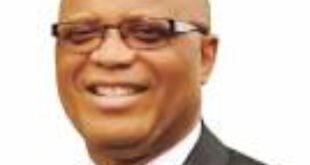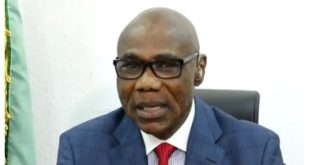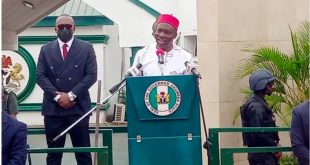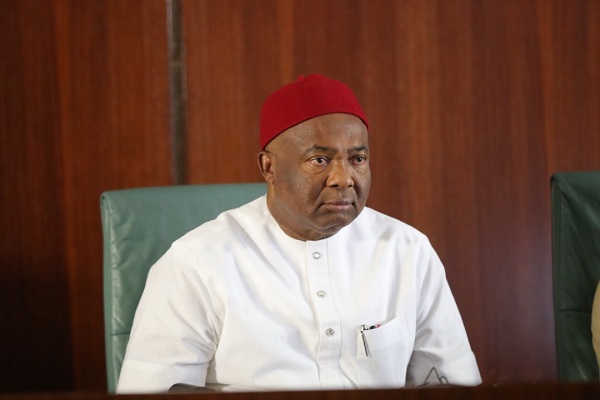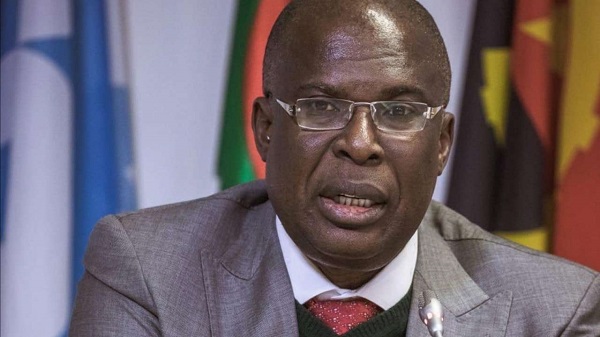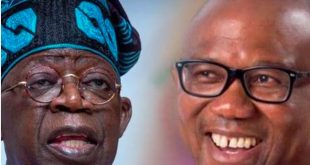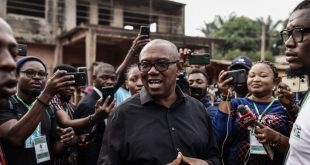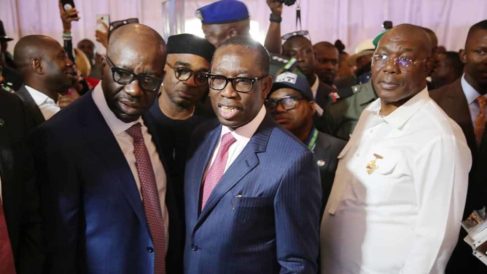
Although the three-day economic diversification workshop organised by Nigerian Export-Import Bank (NEXIM), held in Asaba, Delta State, has come and gone, its success will take a while to yield fruits. But this would also depend on how seriously the regional governments position their states to tap the enormous potential of non-oil export that the region is blessed with which are begging for urgent attention from both local and foreign investors.
Tagged NEXIM-South-South Export Enlightenment and Engagement Forum, there was no doubt that Delta State in particular, and the region in general, are now better enlightened on what to do to realise the non-oil and gas economic opportunities in the region and how best to tap them for the benefit of the people.

Interestingly, the programme afforded the states’ governments of the South-South geo-political zone an opportunity to showcase the abundant mineral and natural resources, just as investors were encouraged to take advantage of the export trade potential that abound in the state.What, however, has continued to agitate the minds of concerned stakeholders is the kind of politics at play in the region that undermines sincerity of purpose by successive South-South governors. Sadly, Ben Ayade (Cross River), Seriake Dickson (Bayelsa), Udom Emmanuel (Akwa Ibom) and Rivers’ Nyesom Wike shunned the all-important event. The same attitude greeted the recent South-South Security Summit by the Inspector-General of Police, Abubakar Adamu, who came with the idea of community policing rather than state police that the zone yearns for.
Not only were these four governors absent, but their exhibition stands were also without anybody in sight on the opening day. Only Edo State Governor Godwin Obaseki and the forum’s host, Ifeanyi Okowa, were present. The worrisome aspect was how this nonchalant attitude contrasts with what obtains in the Southwest and the north, which similarly and regularly hold economic and security summits to better position their regions for speedy development and the collective good of their people. Cohesion seems apparently lacking in the relationship among governors of the Niger Delta states and it explains why the region would continue to play second fiddle in national politics and pittances thrown at it even while it remains the mainstay of Nigeria’s economy with its vast oil and gas resources.

With the intent to diversify the economy of the region, the six states of the South-South geopolitical zone were expected to come together and brainstorm at the event and explore the export potential of the various non-oil and gas products in the region. It was for this reason that Delta State Government, in collaboration with NEXIM Bank, hosted the programme that had ‘Maximising the Export Potential of the South-South Region for Economic Growth’ as theme. It was the first in the series to be held in different geopolitical zones of the country.

It was in furtherance of NEXIM Bank’s mandate of promoting diversification of the Nigerian economy and boosting non-oil exports, and members of the organised private sector and other stakeholders made presentations. Addressing participants were various high profile speakers, including the Chief Executive Officers of NEXIM, Nigerian Export Promotion Council (NEPC), and the Nigerian Incentive Risk Based System for Agricultural Lending (NIRSAL), which brought together exporters, bankers, policymakers, top government officials and operators in the non-oil export sector towards highlighting the non-oil export potential of the south-South region and other pertinent issues that impact its contribution to economic diversification.
Others were those of Small and Medium Enterprises Development Agency of Nigeria (SMEDAN), Nigerian Customs Service (NCS), National Agency for Food, Drugs Administration and Control (NAFDAC), Standards Organisation of Nigeria (SON), Nigerian Agricultural Quarantine Service (NAQS), Nigerian Institute for Oil Palm Research (NIFOR), and Raw Materials Research & Development Council (RMRD).
The managing directors of financial institutions led by Governor of the Central Bank of Nigeria (CBN), Godwin Emefiele, Development Bank of Nigeria, Anthony Okapanachi, as well as those of the Bank of Agriculture and Bank of Industry (BOI), also gave insight into what the region stood to gain in non-oil export, as exporters and prospective exporters also had the opportunity to display their products at the exhibition stalls provided, while various capacity building sessions were equally held, particularly for the benefit of the SMEs.
The highpoint of the programme was the executive session, which was supposed to feature the governors of the six states of the zone to deliberate and agree on strategies to enhance the contributions of the region to non-oil exports, particularly within the context of African Continental Free Trade Area (AfCFTA), which has been scheduled to commence in July 2020.
The host governor, Okowa, in his welcome address, stated that activities would soon begin at the Kwale Industrial Park (KIP) in Ndokwa West Council Area, as methanol and transmission tower manufacturing firms have indicated readiness to set up plants in the state. He stated further, “Our investment drives have started paying off; our state has commenced the process of the Kwale Industrial Park located along Ughelli-Asaba Expressway.
“It is expected to drive my administration’s industrialisation agenda, as the park has the potential to be Nigeria’s biggest location for gas and energy intensive manufacturing such as ceramics, rubber and methanol. We engaged in a successful road show in China, which will bring about the establishment of a methanol manufacturing plant at the park within the next few months, while pulp and paper will also be manufactured at the park.”
The governor also added that as a demonstration of the state government’s faith in the viability of the project and as an incentive to prospective investors, the state government approved $10m seed fund for partnership with interested investors in the KIP. He explained that government has earmarked $5m as seed capital for the establishment of a transmission tower manufacturing plant being promoted by ENFRASCO Limited.
The project, which would be located at Issele-Uku, comprises the establishment of a manufacturing plant for power transmission, telecommunication masts, hot dip galvanising plant, tower testing and certification facility, as well as a research facility training school with focus on fabrication and distribution skills.
“This commitment on the part of the state government serves to de-risk investments and give assurance to prospective investors,” he said. “We call for diversification of the nation’s economy from oil and gas. Evidently, this distorted mono-product economy does not bode well for inclusive economic growth and sustainable development, as oil is a depleting resource.” He further insisted that even more importantly, the advent of electric cars threatens the future of the oil and gas industry, hence the urgent need for the governments in the Niger Delta to expeditiously diversify their economies and maximise their non-oil export potential.
According to him, “To achieve this, it is important that we first take full advantage of our unique location. In business, it is axiomatic that being in the right location is critical for success. Our natural location in the coastal region puts us in a prime position to engage in export-import trade, especially as Delta has four seaports in Warri, Burutu, Sapele and Koko, whose combined capacity exceeds that of all the other ports in Nigeria put together.”
Okowa further said the engagement forum was a big leap for Delta State and the South-South region as it would encourage the region to begin production for exports, saying, “The programme is to enlighten the people and encourage the states to produce for export. Beyond the knowledge, NEXIM Bank has facilities to support each state and the SMEs in the South-South. The bank has committed N1 billion to grow SMEs and the lending rates is convenient at nine per cent cheaper than what you get in commercial banks, which is 20 or 21 per cent per annum. We have been able to get our youths involved in agriculture, introducing them to loan facilities to grow their businesses.”
In his remarks to participants, Edo State Governor, Mr. Obaseki, said investment in infrastructure, including roads, electricity, Information Communication Technology (ICT), and gas was imperative for the country to attain economic diversification. He also said his administration has in the last three years focused on diversifying the economy of Edo State. Obaseki said his administration had worked hard to create the enabling environment for businesses to thrive, stressing that one of the missing links was financing support and expertise to manage small businesses, which NEXIM was bringing on board.
In his words: “For us to diversify our economy and encourage export as a nation, we must focus on infrastructure, particularly access to roads, electricity, Information Communication Technology (ICT) and gas. Edo and Delta States are blessed, as we have the capacity of generating almost 2,000 megawatts of electricity but the challenge is how to move the power to areas for effective production.”
Obaseki said his government had also embraced agriculture to develop and grow the Edo economy, noting, “We have partnered Central Bank of Nigeria (CBN) to develop the oil palm fund and the CBN has supported our plan with N70 billion in funding. We have programmes for both small and large investors in oil palm. Under the oil palm programme, we approached the World Bank programme called Rural Access and Mobility Projects (RAMP) to develop rural roads for easy evacuation of farm produce for export”.
The MD/CEO NEXIM, Mr. Abba Bello, stated in his opening address that the South-South region is the economic capital of the country. He said beyond oil, the region also has huge agricultural and solid mineral resources as well as a thriving tourism sector, which could be harnessed towards contributing to the diversification objectives of the Federal Government of Nigeria. He therefore called for concerted efforts to harness these resources towards creating a well-diversified economy that is resilient in the wake of global economic shocks.
He further introduced the State Export Development Programme, an initiative of the bank, which he said avails each state at least the sum of N1bn towards promoting regional industrialization and economic diversification and pledged the bank’s commitment to work with stakeholders to boost the economic growth of the South-South region and develop necessary partnerships to enhance access of entrepreneurs and exporters to the fund.
Delta State Commissioner for Information, Mr. Charles Aniagwu, had set the tone for the programme while speaking to newsmen after the meeting of the steering committee members held at Delta State Investment Development Agency, Asaba, on the state’s preparedness for the NEXIM conference. The commissioner had stated that the advantages that would accrue from the forum could not be over-emphasized, adding that the summit would afford beneficiaries ample opportunities to maximize their ability in the export Industry.
Aniagwu noted that apart from expanding their knowledge in the area of producing and processing for exporting, NEXIM, Bank of Industry and other critical stakeholders would be there to educate exporters on ways to access loans needed to boost their businesses.
He further noted that though it was a privilege to host the entire South-South Export Enlightenment and Engagement Forum, the choice of Delta State was a pointer to the giant strides of Governor Okowa’s socio-economic development, which according to him, had attracted both national and international attention and recognition. He also observed that the state’s evident development strides had put it on a sound footing to continue the business of diversifying from oil as its export commodity.
The commissioner recalled that as part of the conscious efforts of the state government to sustain the tempo of development, officials from the National Calibrating Team comprising aviation engineers from the Nigerian College of Aviation (NCAT), Nigerian Airspace Management Agency (NAMA), and Nigerian Civil Aviation Authority (NCAA) recently visited the state. He said the gains of the forum also include knowledge on how to package products to meet international standards, explaining that it would help reduce incidences of rejection of the nation’s export produce.
 MMS PLUS NG – Maritime, Aviation, Business, Oil and Gas News Online Newspaper with coverage in Maritime, Oil and Gas, Aviation, Power and Energy as well as Financial News
MMS PLUS NG – Maritime, Aviation, Business, Oil and Gas News Online Newspaper with coverage in Maritime, Oil and Gas, Aviation, Power and Energy as well as Financial News



